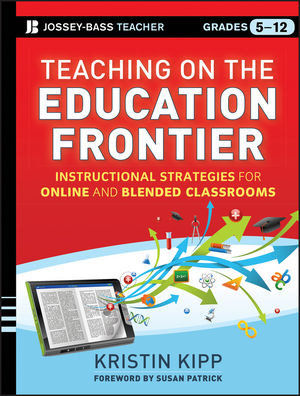For those of us in technology, the emergency online learning that happened during the pandemic was a tragedy. Students from all walks of life were thrust into online learning systems that were cobbled together from disparate systems and by instructors without preparation. Full-day Zoom and poorly designed online worksheets dominated. It was frustrating, but we knew we just needed to hang on. We just had to make it through the pandemic and out the other side, when things could return to closer to a state of “normal,” with thoughtfully designed online learning and implementations that truly meet student needs.
And that happened…sort of. We emerged from the other side and found a new normal post-pandemic. But in this new normal we’re living with a serious pandemic hangover. Teachers and students alike believe that they “tried online learning” and hated it. They saw the very worst of what online learning can offer, and they decided it wasn’t for them. The students who will graduate high school this spring were in 8th grade when the pandemic hit (my son is one of them). The pandemic deeply impacted them emotionally and psychologically. In some ways, they will be our most resilient generation. They’ve already faced the worst and come out the other side. I truly believe they will tackle our thorniest problems with creativity and commitment.
But in this new normal we’re living with a serious pandemic hangover.
And I wonder how their distrust of online learning will impact their futures. I wonder how their hangover headache will impact the way they engage with our universities and the workplace. After all, they will inherit a workplace that is also deeply impacted by the pandemic. So many employees found that there was joy in their new normal– remote workplaces, increased productivity, and a new opportunity for work-life balance through technology integration. Contrary to K-12 students, who found the pandemic isolating at a key moment in their lives, many employees reveled in their new-found workplace freedom through technology. A great social experiment was thrust into the world and many found they liked it. Headlines now are filled with employers trying to bring people back to office buildings and employees who refuse. We didn’t like the fear, uncertainty, or isolation of the pandemic but we liked a new way to work.
And so these two trends will soon collide. Young people with deep misgivings about online learning and perhaps even technology itself, entering workplaces where technology is increasingly the way we do business. As a society, we will need to wrestle with the conflict. We will need to redefine the role of technology in our lives– hopefully this time with less panic (as in the pandemic) and less blind obedience (as in the whole-scale adoption of smartphones as a way of life). We will need to wrestle with hard questions about the role of technology in our daily lives, and we will need to create a new normal where technology can support our quality of life rather than detract from it, where we keep technology in a well-defined role that enriches us.
I think it’s possible. I think we have the wisdom to do this work and an upcoming generation that is ready to wrestle with the tension. I think online learning can play a key role. Well-designed, thoughtful online learning that incorporates high-quality curriculum with strong support–designed and implemented in K-12 and higher education. The kind of online learning that impacts lives and asks the hard questions. Rather than outright rejection of the online classroom, our world should reconsider what great learning experiences are and what role technology plays in them. And we should wade into that tension, for our education system but also for our world.
